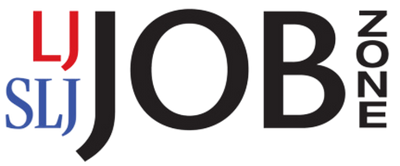Lead Perinatal RecoveryCoach & Trauma Trainer
Job Description
Job DescriptionJob Title: Lead Perinatal Recovery Coach &Trauma Trainer
Program/Department: Moms Do Care Program
Position Type: Exempt, Full-Time 40 hours/ week – Hybrid Position (remote and on-site)
Location: Watertown with some statewide travel to the MDC health care systems
Reports to: Director of Pregnant and Postpartum Women’s Services and Moms Do Care Program
About IHR: The Institute for Health and Recovery (IHR) is a statewide service, research, policy, program development and capacity building agency. IHR designs its services based on an understanding of the impact of trauma. IHR’s CARF accredited treatment programs provide holistic interventions for hard to reach and high-risk individuals and families. IHR’s mission, since our founding in 1990, has been to develop and support a comprehensive continuum of care for families, individuals, youth, and pregnant and parenting people affected by alcohol, tobacco, and other drug use, violence/trauma, mental health challenges and other health issues, while advancing principles of health equity and social justice. Our work is focused on addressing and eradicating inequities in our health care, economic, and justice systems, especially as they disproportionately affect women and people of color. We are committed to providing services and creating communities that mitigate the effects of substance use, mental illness, and trauma.
Summary Statement:
The Lead Perinatal Recovery Coach and Trauma Trainer provides recovery oriented, perinatal peer specific, trauma informed care training and technical assistance (TA) for the Massachusetts Moms Do Care Program (MDC), a multi-pronged, statewide program designed to build trauma informed, multi-disciplinary and regional webs of support for pregnant, postpartum, and parenting people and their families impacted by substance use disorders. Moms Do Care is currently operating in 11 Massachusetts health care systems. Eligible program participants (women over 18, pregnant or parenting a child under 36 months of age, who are seeking support for substance use disorder) are paired with a perinatal peer mentor who acts as care navigator, wellness/recovery coach/peer support specialist by helping participants access a seamlessly integrated continuum of care including: obstetrical, primary, behavioral, and pediatric healthcare; addiction and recovery support; parenting support; and concrete services.
The IHR Training and Technical Assistance team members partner with health care systems and their regional collaborators to build and implement trauma informed and recovery-oriented systems of care- which benefit patients as well as the providers caring for them. The MDC trainers work with providers to assess ongoing training needs and offer high touch follow up to integrate the trauma and recovery principles into program development and system change initiatives.
Essential Functions of Lead Perinatal Recovery Coach/Trauma and Parenting Trainer:
- Provide training, consultation and TA to perinatal recovery coaches, supervisors of perinatal recovery coaches, health care centers, medical staff, and substance use disorder (SUD) treatment staff (located across the state) on peer led recovery, recovery coaching, trauma-informed care, compassion fatigue, substance use disorders, substance exposed newborns, early attachment/parenting, recovery and building recovery-oriented systems of care.
- Act independently as a Lead Perinatal Recovery Coach and in assessing, developing, and implementing site-based training plans and statewide support for recruiting, supervising, training, and advancing the perinatal peer workforce.
- Assist in leading Nurturing Parent and Group Peer Support, or other relevant evidence-based groups and to build a programmatic capacity to deliver these services beyond the life of the grant.
- Provide training, consultation, and TA on provision of family focused care.
- Provide consultation on parenting in recovery.
- Consultation on parent-child relationships and attachment, child safety/protection, and early childhood development
- Work closely with IHR’s trauma and parenting teams.
- Participate in establishing regional provider care collaboratives.
- Use cloud-based systems for communication with IHR’s site office, including shared calendars, timesheets, and supervisor check-ins.
- Attend team and agency staff meetings.
Qualifications/Requirements:
- BSW or MSW degree in Social Work, Psychology or related field of study (preferred but not required), relevant experience and in recovery coaching, parenting while in recovery, peer recovery coach supervision
- Previous experience in clinical work, training, and TA.
- Curriculum development experience.
- Knowledge of substance use disorder treatment and recovery.
- Trauma –informed care knowledge.
- Understanding of family-centered, recovery-oriented systems of support, and the intersection between parenting and substance use disorders.
- Experience working with pregnant and post-partum people and caregivers of young children.
- Knowledge of issues for Infants with Prenatal Substance Exposure (IPSE).
- Knowledge of health care and substance abuse provider systems and medications that assist with recovery from substance misuse and addiction.
- Experience working in a position of responsibility on complex multi-year projects.
- Project development and design experience, reporting to funding agencies and cross-agency partnerships.
- Computer skills, presentation planning skills.
Other Requirements: (If Applicable)
- Valid driver’s license, good driving record, and regular access to a reliable vehicle;
Travel between sites (reimbursed).
Competencies:
- Clear and effective communication
- Strong organizational skills
- Ability to work effectively in teams
- Self-motivated and independent
- Problem-solving skills
- Adaptability and flexibility
- Commitment to ongoing development and learning
- Dedication to diversity, equity, inclusion and justice
Physical Requirements: The physical demands of this position include talking, hearing, sitting, standing, walking, lifting, and using hands for activities such as grasping, handling, and reaching. These physical and mental demands are essential for the successful execution of job responsibilities. Reasonable accommodation will be made for qualified individuals with disabilities.
